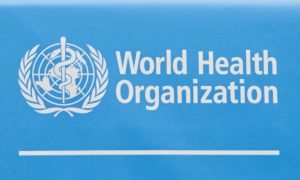 The World Health Organization (WHO) has recommended wide-ranging restrictions on the sale and promotion of electronic cigarettes, even suggesting countries should consider a total ban – and immediately come under fire for doing so.
The World Health Organization (WHO) has recommended wide-ranging restrictions on the sale and promotion of electronic cigarettes, even suggesting countries should consider a total ban – and immediately come under fire for doing so.
One of the hot points on the agenda of the seventh Conference of the Parties (COP7) to the Framework Convention on Tobacco Control (FCTC) in New Delhi earlier this month was the WHO report on what it terms Electronic Nicotine Delivery Systems and Electronic Non-Nicotine Delivery Systems (ENDS/ENNDS) and its recommendations on regulation. The report, just seven pages long, suggested that countries should prohibit implicit or explicit claims about the products’ effectiveness as smoking cessation aids unless approved by a specialist government agency.
The authors of the report say that although the number and level of known toxicants generated by the typical use of e-cigs is on average lower or much lower than in cigarette smoke, they can vary enormously and sometimes reach higher levels than in tobacco smoke.
The WHO considers imposing restrictions, including banning flavours, advertising and possession by young people. It recommends warning all non-smoking women and young people to avoid nicotine.
Criticism and disagreement
The position is more or less the same as that adopted at the previous Conference of Parties in Moscow in 2014 (COP6), at which the final recommendations of the WHO on e-cigarettes suggested a need for public place usage restrictions, among others.
The latest WHO recommendations attracted considerable criticism for “mispresenting” and “inadequately covering” the evidence. Many professionals took to social media to show their disagreement with the conclusions in the WHO report.
The Tobacco Harm Reduction Expert Group, a group of e-cig professionals, said: “Disproportionate restrictions, such as regulation of e-cigarettes as medical products, applying similar restrictions as for tobacco cigarettes, or bans on advertising, will only make such products extremely expensive, limit access of smokers to proper information, and create misconceptions that they are as harmful as smoking.”
The WHO was criticised for excluding media representatives from attending the meeting – ECigIntelligence among them – as it also did in Moscow two years ago. Representatives of the tobacco industry were also barred from the conference.
– David Palacios ECigIntelligence staff







